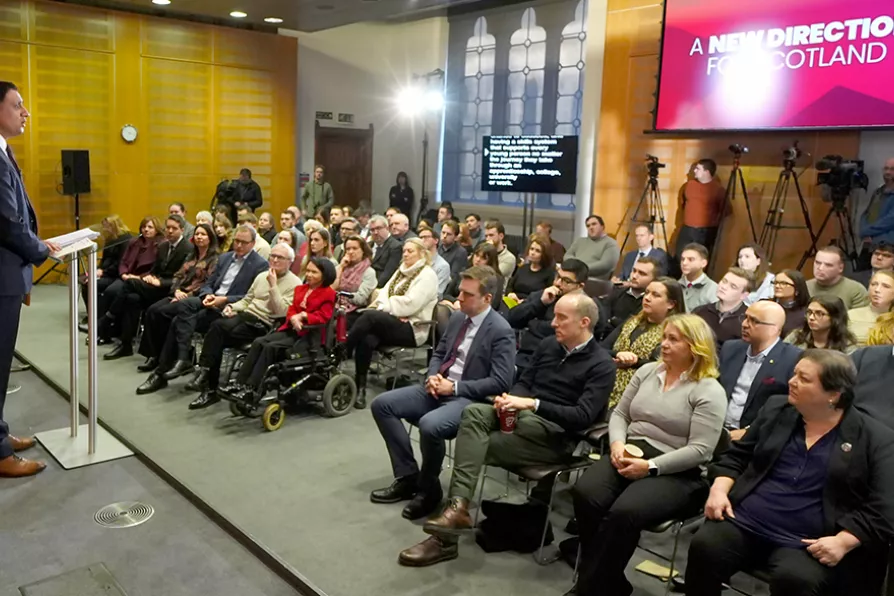John Wojcik pays tribute to a black US activist who spent six decades at the forefront of struggles for voting rights, economic justice and peace – reshaping US politics and inspiring movements worldwide

 POURING FROM AN EMPTY CUP: Scottish Labour leader Anas Sarwar at The University of Glasgow calling for a new political direction in Scotland
POURING FROM AN EMPTY CUP: Scottish Labour leader Anas Sarwar at The University of Glasgow calling for a new political direction in Scotland
IT MUST have felt like a nightmare for Anas Sarwar last Sunday morning. The very week that the Scottish Labour Party is to meet and in effect launch its bid for power in the 2026 Scottish Parliament elections, the Sunday Times published a Norstat poll that would give Scottish Labour its worst result in the forthcoming elections since the inception of the Scottish parliament in 1999.
According to the poll, only 18 per cent of the Scottish electorate said they would vote for Labour, giving them 18 seats, four fewer than they currently have.
By contrast the SNP would win 55 seats, and the Greens 10, giving a narrow pro-independence majority of one. The good news is the Tories would lose 13 of their 31 MSPs, giving them, like Labour, 18 seats.

Having endured 14 years of Tory austerity followed by Starmerite cuts, young voters are desperate for change — but Anas Sarwar’s refusal to differentiate from Westminster means Scottish Labour risks electoral catastrophe, writes LAUREN HARPER

RUBY ALDEN GIBSON believes Scottish parliament has enough powers to curtail Westminster Labour’s savage attack on welfare











